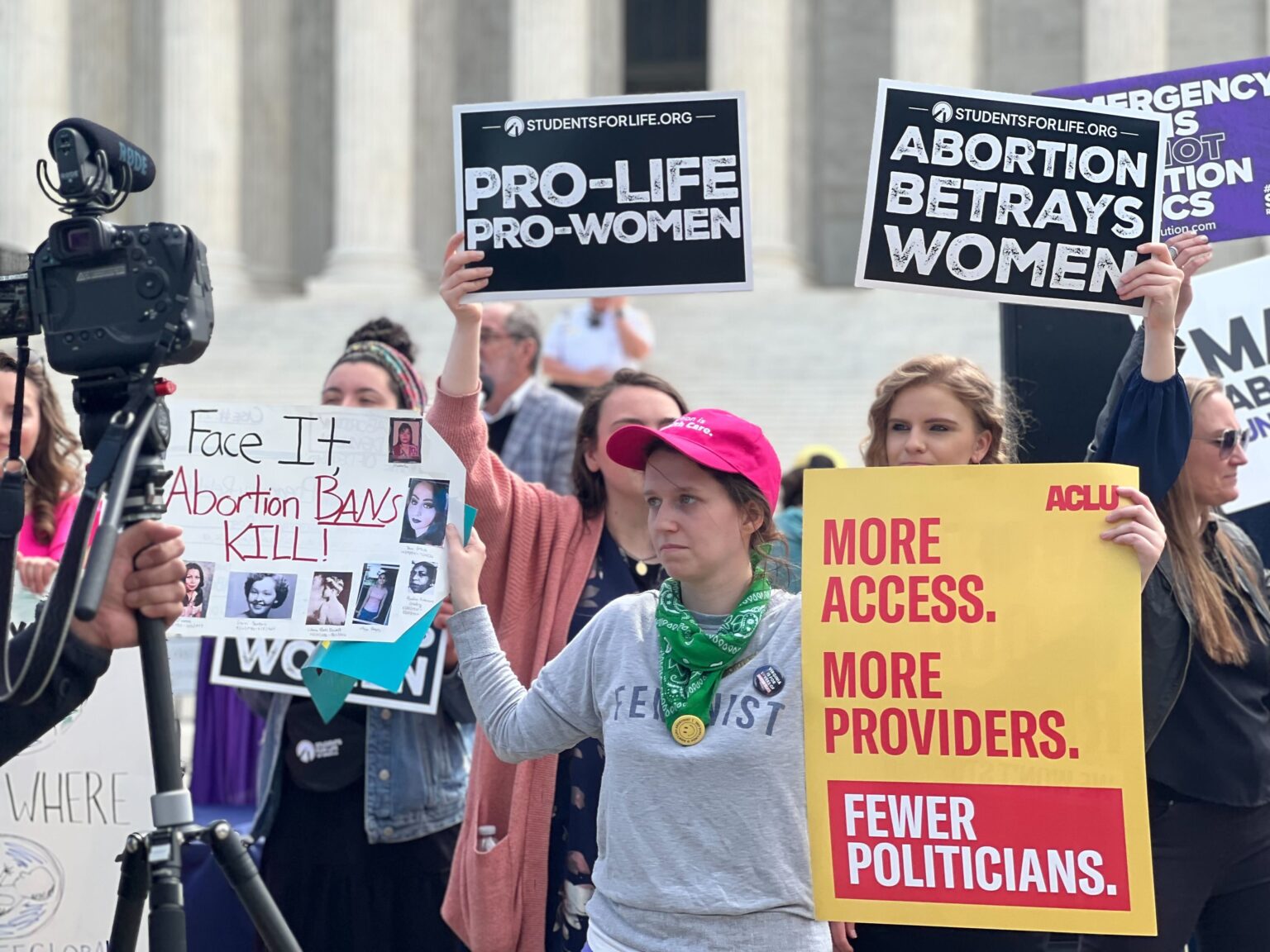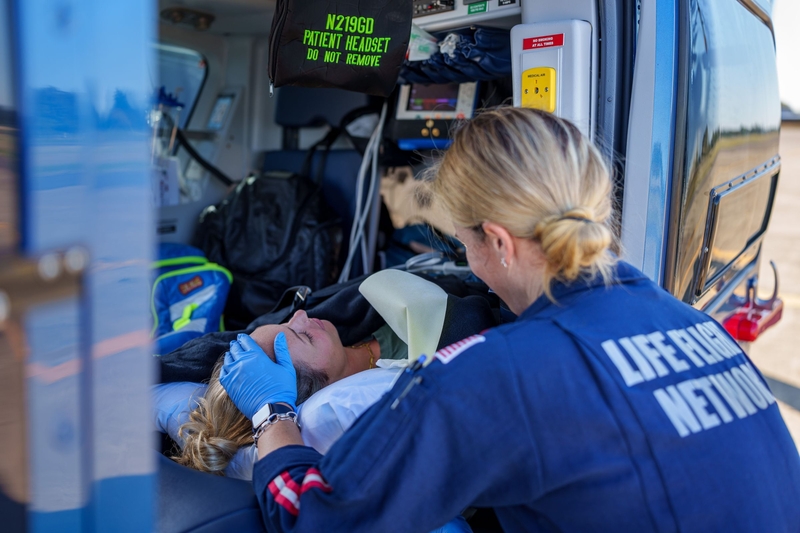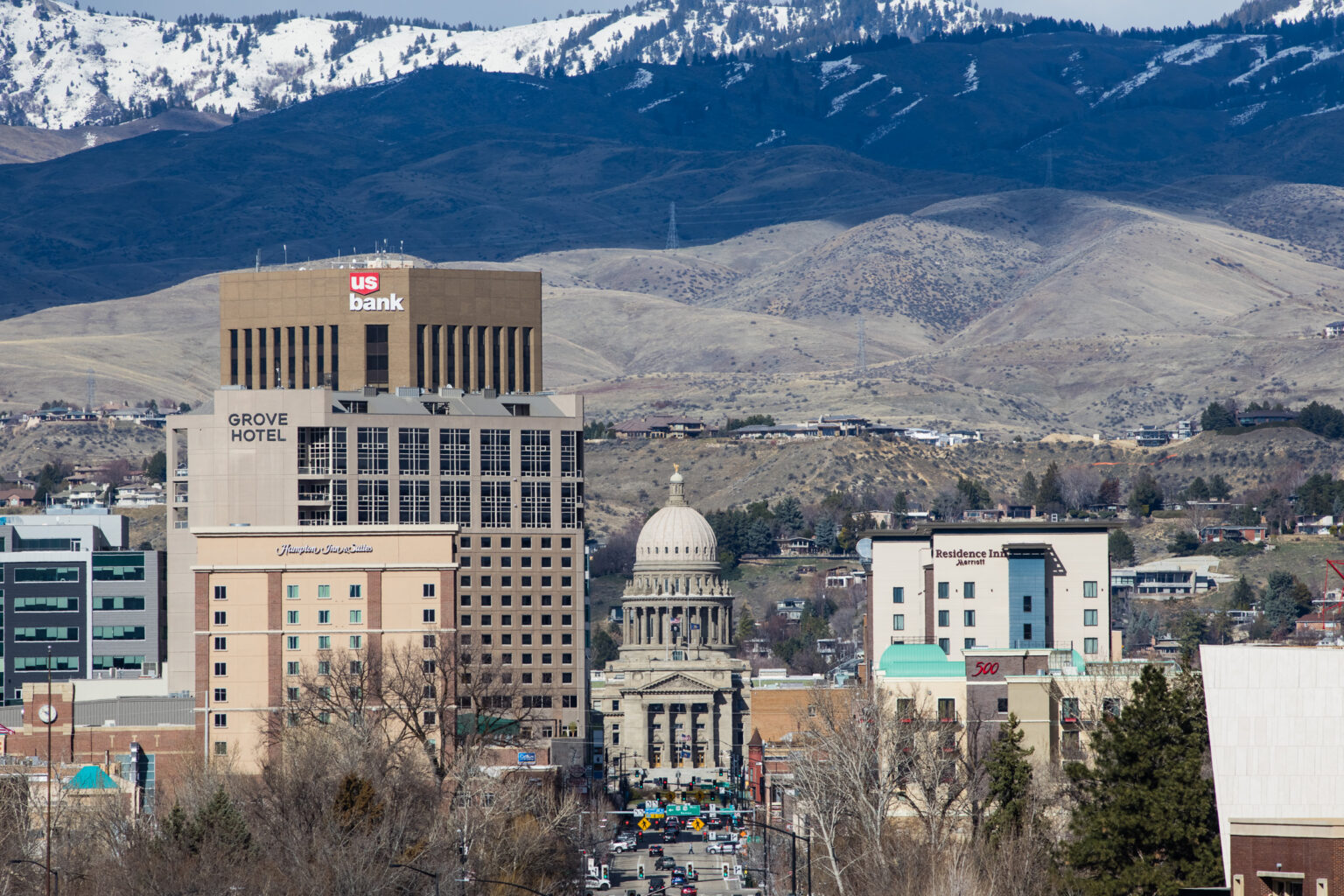As legislative sessions begin, states will continue to introduce and examine legislation to increase or limit access to abortion and reproductive health care, marking the start of the third year since Roe v. Wade was reversed. States with extensive protections for reproductive rights have submitted legislation to protect physicians and patients in the event that the incoming Republican administration reverses protections put in place under President Joe Biden, ahead of President-elect Donald Trump’s January return to the White House. States with stringent prohibitions, on the other hand, have begun to impose limitations such as abortion pill penalties and fetal personhood bans.
The majority of legislatures will meet for the second week of January or later and then adjourn in the middle of the year. On Monday, the Idaho Legislature convened for the 2025 session.
California works to safeguard medical privacy and abortion drugs.
Trump even blasted certain stringent state laws throughout the campaign and said he would not sign a nationwide abortion ban. However, Trump and his appointees now control the outcome of numerous government abortion-related policies and cases.
Removing a Biden-era rule that compels emergency medical personnel to stabilize pregnant women even if treatment entails an abortion procedure is one of the many regulatory actions that national anti-abortion organizations are urging the incoming Trump administration to do.
Leaders opposed to abortion told States NewsroomLobbying the U.S. Department of Health and Human Services to limit pharmaceutical abortion and forbid its use through telemedicine is their main priority. Robert F. Kennedy Jr., Trump’s nominee for HHS secretary, has defended abortion rights in the past. However, anti-abortion activists are attempting to capitalize on Kennedy’s vocal skepticism of pharmaceuticals by claiming that the adverse health and environmental effects of abortion drugs were not adequately tested, a claim that the U.S. Food and Drug Administration has denied. Kennedy recently indicated that he would be amenable to limiting the drugs.
Democrats in California submitted a number of legislation before the year began to protect medication abortion and uphold the state’s Reproductive Privacy Act, which guarantees the freedom to choose one’s own reproductive care without intervention from the government.
Assembly Bill 40 would define emergency services and care to include emergency abortion and reproductive health services; Assembly Bill 45 would forbid providers from disclosing to other states any medical information pertaining to abortions; and Assembly Bill 54 would protect abortion-pill producers, distributors, and medical personnel from liability under the law and in their profession.
Bills to limit the use of abortion medications
Republican politicians and law enforcement officials have indicated they are taking tough measures against abortion medicines, which are frequently shipped from states with so-called shield laws to states with abortion restrictions, like Texas, where abortion was outlawed in 2021. When Republican Attorney General Ken Paxton sued a New York doctor in December for allegedly using telemedicine to prescribe abortion drugs to a Texas woman, Texas sparked an interstate legal war.
Although the FDA has determined that mifepristone and misoprostol are safe, Republican Texas Rep.-elect Pat Curry proposed House Bill 1339 in November that would categorize the medications as prohibited substances.
By January 31, the reconstituted Idaho Maternal Mortality Committee will publish a fresh report.
Similar to a Louisiana legislation passed last year, the bill has drawn legal action from healthcare professionals who claim that the measure’s tougher documentation and storage requirements could cause patients’ emergency care to be delayed. Republican Senator Thomas Pressly of Louisiana, whose pregnant sister was given abortion-inducing medicine by her ex-husband without her knowledge, sponsored it.
The argument put forth by anti-abortion organizations is that in order to combat forced or undesired abortions, additional state regulation aimed at abortion medicines is required. Based in part on their 2023 study of questioned women, the Charlotte Lozier Institute, an anti-abortion research think tank that produced retracted abortion-pill research, asserts that unintended or coerced abortion is a secret epidemic. They discovered that around 70% of abortions are forced, unwelcome, or against the wishes of the woman. Compared to women who stated that their abortions were approved but not in line with their values and preferences (43%), 24% of women claimed that their abortions were unwanted or forced.
The conservative organization known as the Heritage Foundation, which is behind the Project 2025 set of rules, has compiled a number of instances of abortion drugs being administered to expectant mothers against their will. They advise states to improve or pass legislation addressing abortion coercion and to outlaw telemedicine and mail-order abortion medications in order to address the issue. Despite the governor’s veto, Kansas approved a law in 2024 that made forcing a woman to terminate a pregnancy a felony.
Bills to establish fetal personhood are pushed by lawmakers.
It is anticipated that states that prohibit abortion would work to include specific fetal rights in their legislation by 2025.
Oklahoma has a criminal legislation from 1910 that prohibits abortion and imposes a sentence of two to five years in jail.Republican Representative Jim Olsen sponsored House Bill 1008, which would safeguard fetuses and make abortion a criminal for medical professionals, punishable by up to $100,000 in fines and/or 10 years in jail. Abortions are only permitted under the proposed bill if the physician determines that the pregnant woman’s life is in danger from the baby’s delivery.
With a few exceptions for certain medical conditions, Tennessee already has a strong prohibition on abortion. However, the statute would be significantly expanded by House Bill 26, which was introduced by Republican state representative Gino Bulso. Human life begins at fertilization, an unborn child is entitled to the full and equal protection of laws that forbid violence against any other person, and the Comstock Act makes mailing or delivering abortion pills a federal criminal punishable by up to $5 million. In order to alter the state constitution and guarantee equal protection rights for all human beings from conception to natural death, Bulso also introduced House Joint Resolution 7.
Laws to protect, limit, and increase access to abortion in response to ballot propositions
Abortion rights views in America don’t neatly fit with partisan leanings, as ballot proposal organizers told States Newsroom.
The 2024 presidential election was the clearest example of that scenario, as voters in Trump-supporting areas also chose to preserve access to abortion, sometimes by landslides.
In November, ten states put abortion-related policy questions on their ballots, and seven of those states passed them. South Dakota, Nebraska, and Florida were the three states where the measures failed. Although 57% of Florida voters supported the restoration of access, an amendment must receive 60% of the vote in order to be approved by the state constitution.
In Nebraska, an amendment that would have guaranteed access to abortions to fetal viability in the state constitution was defeated by a competing proposal that would have restricted abortions to the first trimester, or around 12 weeks gestation. Although South Dakota’s attempt to guarantee access to abortion in the first trimester was rejected by almost 59% of the state’s voters, Nebraska’s abortion rights bill did not fare as badly.
Although clinics are still awaiting the courts’ decision on whether they can resume providing abortion services, voters in Arizona and Missouri both passed legislation to restore access to abortion. A law that outlines the right to an abortion as part of reproductive health care and forbids government intervention prior to viability was approved by the voters in Montana, where access to abortion has been essentially unaffected since the Dobbs v. Jackson Women’s Health Organization ruling. In a similar vein, 63% of voters in Nevada approved adding the right to their constitution; however, it won’t take effect until 2026.
Trump won the electoral college vote in each of those states.
States like Colorado, Maryland, and New York, which already had widespread access to abortion, approved legislation to increase it even more. New York forbade discrimination based on pregnancy, Maryland added the right to its state constitution, and Colorado will mandate that insurers cover treatment costs.
The 2026 midterms will see at least one state try to qualify an abortion ballot question. Launched in April, Idahoans United for Women and Families submitted its ballot titles for approval in August. The group has already gathered $321,000, and spokesman Melanie Folwell told States Newsroom that the signature collection process is expected to start in late January. More than 500 people have volunteered to help gather signatures, according to Folwell.
Laws to restore some access in places that forbid abortion
In September, a district court declared the state’s abortion ban illegal, leaving North Dakota in uncertainty. The state quickly appealed to the North Dakota Supreme Court, which recently heard arguments to determine whether abortions can legally take place while they consider the appeal. The ban made all abortions illegal, with exceptions for serious health risks or cases of rape or incest, but only if the person had been pregnant for less than six weeks.
Amid the legal wrangling, medical school professor and Republican state Rep. Eric Murphy proposed a bill that he says would offer a middle ground based in science for abortion access in the state,North Dakota Monitor reported.
The legislation would allow abortions for any reason through 15 weeks of pregnancy, since most people don t know they re pregnant for several weeks and should have time to decide whether they want to continue the pregnancy, Murphy said. Between weeks 16 and 26, abortions would be permitted if a committee of three doctors determined it was medically necessary. The bill would allow doctors to perform abortions for emergency health reasons at any time without the committee s approval.
This type of model is in place in other states such as Alabama, but the exception is rarely utilized by medical professionals for fear of their decision being questioned or prosecuted, threatening their medical license or freedom. Although the Monitor noted a recent poll showed 55% of North Dakotans oppose the state s abortion ban, fellow Republican lawmakers say Murphy s bill is likely going nowhere in the upcoming legislative session.
Efforts to improve maternal health, pregnancy rights
While some states remain focused on abortion restrictions, others are turning attention to maternal health care, particularly for people of color and those living in rural areas, and extra protections for individuals in states with abortion access.
Lawmakers in Michigan s Senate advanced a package of eight bills called Momnibus, a play on omnibus, aimed at improving maternal health outcomes and decreasing racial disparities in health outcomes during pregnancy,Michigan Advance reported. Among them,Senate Bill 819would require a government agency to take reports of obstetric violence or racism. The legislative body is also pushing through a bill toprotect reproductive health care data.
Virginia lawmakers are also preparing to consider maternal health care bills that would include remote monitoring services for some high-risk patients in rural areas, as well as an expansion of Medicaid,according to Virginia Mercury. In Kentucky, a state with a near-total abortion ban, there is also a push to establish special insurance coverage periods two years postpartum, recruiting more people of color to medical teams, hiring more doula workers for care teams and more,Kentucky Lantern reported. In California, there s aproposalto reimburse alternative birth centers under state Medicaid.
Texas legislators may also debate passage of a package of proposals aimed at addressing maternal health care in rural areas. Almost half of all Texas counties offer no maternity care services,according to Texas Tribune, and living in a maternity care desert contributes to delayed prenatal care, increased pregnancy complications and worse delivery outcomes.
New Jersey Monitor reporteda bill that would allow workers to take between seven and 21 days of leave for the death of a child, miscarriage, stillbirth or other related reproductive losses faces one more hurdle in the state senate before it may become law.
GET THE HEADLINES FOR THE MORNING.
Note: Every piece of content is rigorously reviewed by our team of experienced writers and editors to ensure its accuracy. Our writers use credible sources and adhere to strict fact-checking protocols to verify all claims and data before publication. If an error is identified, we promptly correct it and strive for transparency in all updates, feel free to reach out to us via email. We appreciate your trust and support!



